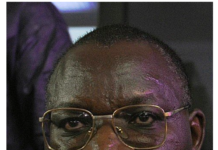Kinshasa, February 9, 2024- During the Africa Cup of Nations (AFCON) semi-final game between the Democratic Republic of Congo (DRC) and Côte d’Ivoire on Wednesday, Canal+, a prominent French satellite TV provider, found itself at the center of controversy. The broadcaster has been accused of intentionally avoiding camera shots of Congolese supporters who were displaying messages protesting against the ongoing conflict in the eastern part of their country. This action—or lack thereof—has sparked a significant backlash, leading to calls for a boycott against the company.
Voici les images des congolais que canal plus que nous devons boycotter a refusé de montrer à la CAN. Quittons canal plus pour venger le sang de nos frères qui sont tués par millions à l’est de la RDC pic.twitter.com/P7XONNLQho
— Yves Tresor (@TresorKapya) February 9, 2024
Viewers who tuned into the match via Canal+’s sports channels reported that they were unable to see the messages that Congolese fans had brought to the stadium, messages that were inscribed on placards, T-shirts, and other garments. Critics, particularly on Congolese social media platforms, have accused Canal+ of deliberately choosing wide shots when showing the Congolese audience, thereby preventing a close-up view of the protest messages. This has led to a surge in calls for local subscribers to cancel their subscriptions in protest against what they perceive as censorship.
In response to the uproar, Canal+ issued a statement clarifying its position on the matter. The company stated, “We are not the decision-makers regarding the images that are shown on the screen.” It further explained that it broadcasts the international feed provided by the Confederation of African Football (CAF), adding commentary from its own journalists and analysts to the coverage. This explanation suggests that Canal+ might not have direct control over the selection of camera angles or shots during the broadcast of the game.
The controversy escalated when a video went viral on social media, showing a Congolese citizen vandalizing a Canal+ satellite dish in apparent protest against the broadcaster’s actions during the AFCON semi-final. This incident underscores the depth of feeling among some segments of the Congolese population regarding the visibility of their messages against conflict in their homeland.
#URGENT
L’opération zéro CANAL + en RDC a déjà commencer, nous avons compris que @canalplus est au service de @RwandaGov et M23 qui tue en RDC avec la complicité des américains et français @POTUS @EmmanuelMacron @HillaryClinton @UN @UnionEuropea22 .
Nous irons jusqu’au bout pic.twitter.com/rWVBWvtsBW— SAUVONS LE CONGO (@OfficielSa24737) February 9, 2024
This situation brings to light the complex dynamics between media coverage, political activism, and sports. It highlights the challenges that broadcasters face in balancing the demands of neutral coverage with the passionate expressions of political and social statements by fans. The incident also raises questions about the responsibility of international broadcasters in representing the diverse voices and concerns of their global audiences, especially in contexts where sports events become platforms for political and social messages.
As the debate continues, it remains to be seen how Canal+ will address the concerns raised by its Congolese viewers and what measures, if any, it will take to ensure a more inclusive representation of fan expressions in future broadcasts.
































































